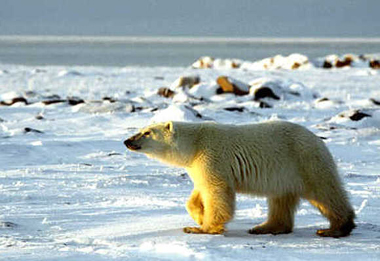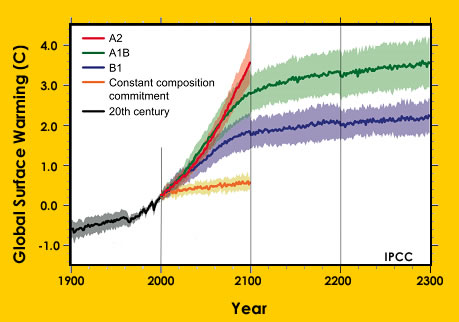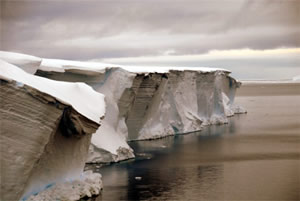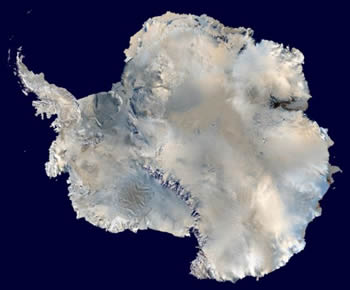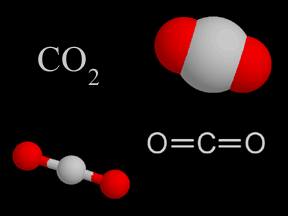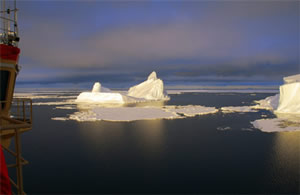Click on image for full size
US Minerals Management Service, Alaska Region
Related links:
Global Warming: Scientists Say Earth Is Heating Up
Read the IPCC Impacts, Adaptation and Vulnerability Report (Working Group II)
IPCC Frequently Asked Questions about Climate Change
Greenland’s Ice Is Melting Faster
How Many Species Have There Been on Earth?
Changing Planet: Adaptation of Species VIdeo and Classroom Activity
Climate Change Impacts, Adaptation and Vulnerability - Present and Future
A second report from the Intergovernmental Panel on Climate Change (IPCC) shares the current scientific understanding of how people and natural ecosystems are affected by climate change, and how they will be affected by future warming (in February, the IPCC released their first summary report on the physical science basis for climate change).
The report, Climate Change 2007: Climate Change Impacts, Adaptation and Vulnerability, was released on Friday April 6, 2007 by the IPCC, a large group of scientists from around the world brought together by the United Nations to assess our understanding of the Earth’s climate, global warming, and the impacts of climate change. Here are a few of the report’s main conclusions.
The Present
Many natural environments on all continents and in most of the oceans are already affected by the changing climate. The snow and ice of Earth’s cryosphere is melting causing unstable ground and changes in Arctic and Antarctic ecosystems. Rising water temperatures are the likely cause of changes in marine and freshwater ecosystems. Oceans have become more acidic as they take in more carbon dioxide from the atmosphere. On land, the plants, animals, and other living things of ecosystems have been affected by warming temperatures. Warmer temperatures have affected agriculture by changing planting dates and the impacts of fires and pests. Human health has been affected as warming increases dangerous heat waves and causes changes to the amount of pollen and the spread of diseases.
The Future
In the future, according to the report, we can expect that freshwater supplies will increase at high latitudes and in wet tropical areas. However freshwater supplies will become less available in areas where water is already in short supply. Areas that are affected by drought, such as southern and northern Africa, are expected to become more so. Flooding will likely become more common in areas that are already prone to flooding.
Within this century climate change and other global changes such as change in land use and pollution will collectively be too much for many ecosystems to handle and they will not be able to adapt. Twenty to thirty percent of plant and animal species will become extinct if global average temperatures increase 1.5 – 2.5°C, which is within the range estimated by computer models for 21st Century.
Coastal communities, especially in low-lying regions, will be increasingly vulnerable to flooding as sea level rises, especially where tropical storm events are common. Plus, the frequencies and intensities of extreme weather events are very likely to increase. Small islands are especially vulnerable.
Responding to climate change
The number of communities that are taking steps to adapt to current warming and prepare for future warming is limited. The report urges that more action needs to be taken to as climate continues to warm in the future.


